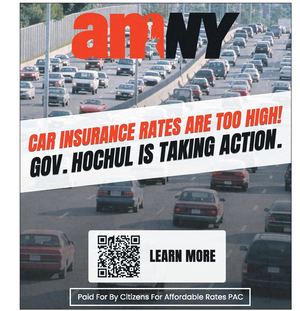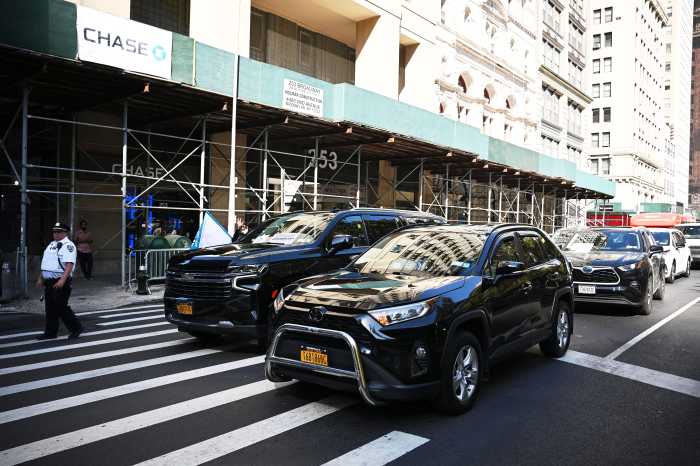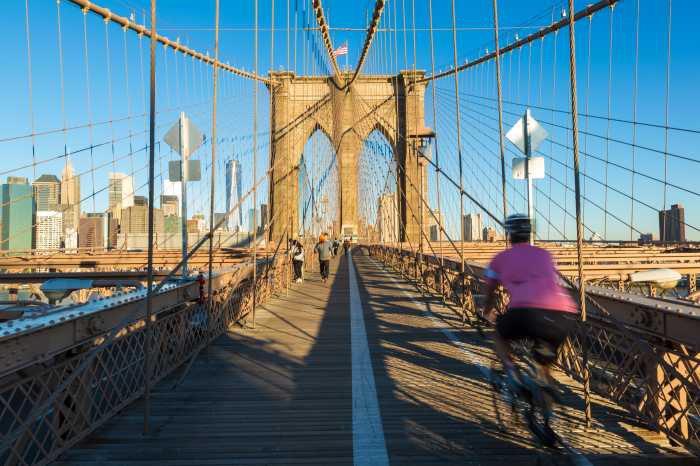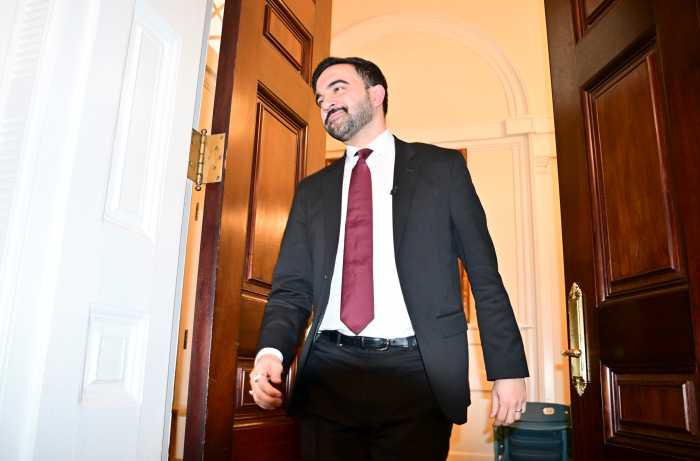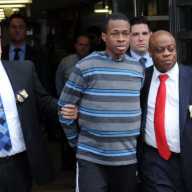MTA chairman Joe Lhota pitched his Subway Action Plan to City Council on Thursday in hopes that the lawmakers can pressure a resolute Mayor de Blasio into funding half the program.
It was a rare event — an MTA chairman testifying before the Council — though Lhota’s been in the seat before as a former city budget director and deputy mayor. As budget negotiations continue this year, Lhota hopes to gain support from the Council, which is disgruntled by the state of the failing subways, to recommend that the mayor allocate city funds to pay for half of the $836 million plan to improve service.
“I think they care about their constituents, who are my riders,” Lhota said. “As I’ve said before, the riders are my master. So I think we share a lot in common.”
But several council members in attendance lambasted the MTA, a state agency overseen by Gov. Andrew Cuomo, for lack of transparency, accountability and long-term planning for service improvements. Council Speaker Corey Johnson opened the hearing by reiterating his position that the city should only provide additional funding to the agency with certain guarantees: “complete transparency” and “regular reporting” on behalf of the MTA.
“I do think that any direct subsidy should be a one-time occurrence, rather than on a recurring basis, because doing otherwise would lead us down a slippery slope,” Johnson said. “But regardless of the form that such financial support may come in, it is absolutely imperative that the city’s money go directly to improving the subways and nothing else. This cannot be another opportunity for the state to siphon the city’s money away for other priorities. And I’ve said before the city’s contribution must go into lockbox, preferably one without a key.”
The debate over funding focused on the Subway Action Plan’s first phase: a short-term fix that hinges on the hiring of nearly 3,000 new transit workers in order to tackle core service issues including track and signal maintenance, car reliability, subway safety and cleanliness, and customer communication.
After unveiling his plan this summer, Lhota had asked Gov. Andrew Cuomo and Mayor Bill de Blasio to split the cost to help bail out the state-run subways from their soaring delays. The mayor has steadfastly refused, pointing out that New York City residents, workers, businesses and government already contribute nearly 70 percent of the MTA’s total annual revenues, more than $10 billion.
Mayoral spokeswoman Jaclyn Rothenberg, in a statement, called for the governor to restore what the city calculates to be $456 million that the state had previously diverted from the agency.
“The State should institute a fee on for-hire vehicles as an immediate revenue source,” said Rothenberg. “As the Mayor has said before, we agree with the Speaker on the need for more City oversight and input on MTA spending.”
Peter Ajemian, a spokesman for the governor, said Cuomo is taking an “aggressive” approach at solving the Subway crisis, which the governor has overseen, through actions like embracing congestion pricing.
“We agree with the speaker and other responsible city officials who say the city should provide more funding to fix the subways,” Ajemian said in a statement. “The mayor has left New York’s working families suffering delays for the past year due to his arrogant refusal to act reasonably and fund the city’s half of the subway action plan.”
Regardless, without the money Lhota has begun slowing down his plan. MTA board members have also begun to question the plan’s effectiveness and, at the hearing, Brooklyn Councilman Brad Lander criticized it for not including more funding to go directly to upgrading the MTA’s nearly century-old, frequently failing signal system — the leading cause of subway delays.
The action plan allocates $34 million to such work, according to Lhota, though modernizing the system will likely cost billions. Lander said he’d want a “comprehensive program to fix the signal system in 15 years and not 50 years,” he said.
Lhota argued the entire action plan “relates” to signal operations. Though he agreed that a signal upgrade “has to happen faster” and noted that the MTA was exploring new signal technology known as ultra-wideband radio to more quickly update its current model, he said the technology was still in a “proof of concept” stage.
“I can’t wait for proof of concept of jet backpacks,” said Lander sarcastically. “I feel like that’s coming sooner, before the signal system is modernized.”
The questioning was in line with sentiments from John Raskin, the executive director of the nonprofit Riders Alliance, who called the Subway Action Plan a distraction in an opinion-editorial published Thursday in the Daily News — an Op-Ed that Lhota called a “cheap shot.”
Raskin said the future health of the subways really relies on Cuomo, who is still negotiating support for the congestion pricing plan from his Fix NYC panel. The plan could raise more than $1 billion in revenue for the MTA each year.
“In order to have a discussion about what the city should contribute, Cuomo needs to exercise his storied leadership skills — not to get us through another day of deteriorating subway service,” Raskin wrote, “but to modernize our broken transit system and end this crisis for good.”
